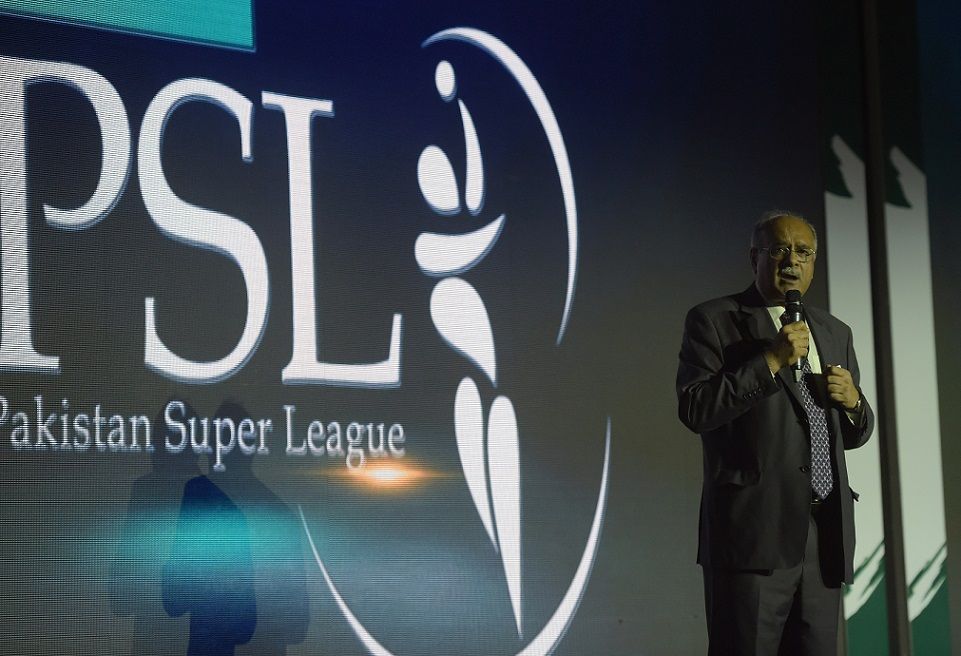Against all odds the PCB succeeded in delivering a world-class product and cricket’s stakeholders are now aiming to salvage the Pakistan Super League (PSL) by handing it over to a group of independent directors, in an attempt to ‘keep the league away from PCB politics.’
The league failed to take off more than once and finally got off-ground only after the five franchises reposed confidence in the Najam Sethi led PSL team last year, buoyed by the success of the inaugural event; both Sethi and the PCB are eyeing a corporate structure to run the league on the lines of some of the major and most iconic sporting competitions like the English Premier League (EPL), National Football League (NFL) etc.
But like most PCB decisions the privatisation of PSL has brought to the fore its own share of detractors with questions being raised about how much control the PCB would actually have on the tournament once a corporate infrastructure is implemented.
The amusing thing though is that the same detractors are found lamenting PCB’s own governance structure and the ‘influence of politics’ in the day-to-day affairs of the board. The grapevine also has it that some board officials mirrored the thoughts and still remain sceptical about the privatization proposal fearing disconnection from the board’s biggest cash cow.
Whether a corporate structure works in a largely politicised environment will only be known in due course for now once can term it a step in the right direction since the PCB needs to safeguard the interests of the investors in the league who are all from diverse corporate backgrounds and are likely to have little or no patience for political shenanigans in PSL operations.
All five franchises have made big investments in developing a fan base and attracting sponsors for their respective teams, a couple are already developing programs that can help them engage in cricket activities outside Pakistan and UAE besides collaboration with other T20 clubs from around the world.
As the teams spread their wings they need a reliant and strong set-up that can withstand political turmoil that often hinders PCB operations.
The PCB bigwigs have historically been handpicked by incumbent governments and usually use their political clout and background, only the right kind of ‘connections’ in the PM or President Office can guarantee access to the Gaddafi Stadium — PCB’s equivalent of the Oval office.
Often a change in government brings to an end the reign of a PCB chairman and despite constitutional amendments the incumbent administration isn’t expected to buck the trend either.
In such a scenario, separation of the league with wide-ranging stakeholders gives the franchise a sense of comfort and somewhat safeguards their investments with the knowledge that outside influences are less likely to jeopardise the league.
A corporate structure with a leading entrepreneur saddled in the chairman’s seat can go a long way in attracting local as well as foreign investments in the league, investors the world over want a stable and progressive environment and they are more likely to believe in an independent body run by professionals than enduring the PCB officialdom.
Pakistan need to make the PSL stronger as a product, the euphoria of the success of the first season should act as a tonic for the second; the key though is to not build high and unrealistic expectations that derail the core process — the promotion of cricket and development of the players plying their trade at the biggest domestic competition.
The five franchises have strategic business plans for the second edition and are trying to attract sponsors ranging from different backgrounds, it is imperative that the franchises acquire financial strength and reach their projected figures and upturn in the three year period that the PCB had promised them during the bidding process last year.
The financial success of the participating teams should give indomitable strength to the PSL and make the transition from PCB to privatisation a smooth one, the future is bright provided the product is given the time and space to flourish.
@ The writer is a sports journalist and media consultant for Peshawar Zalmi
